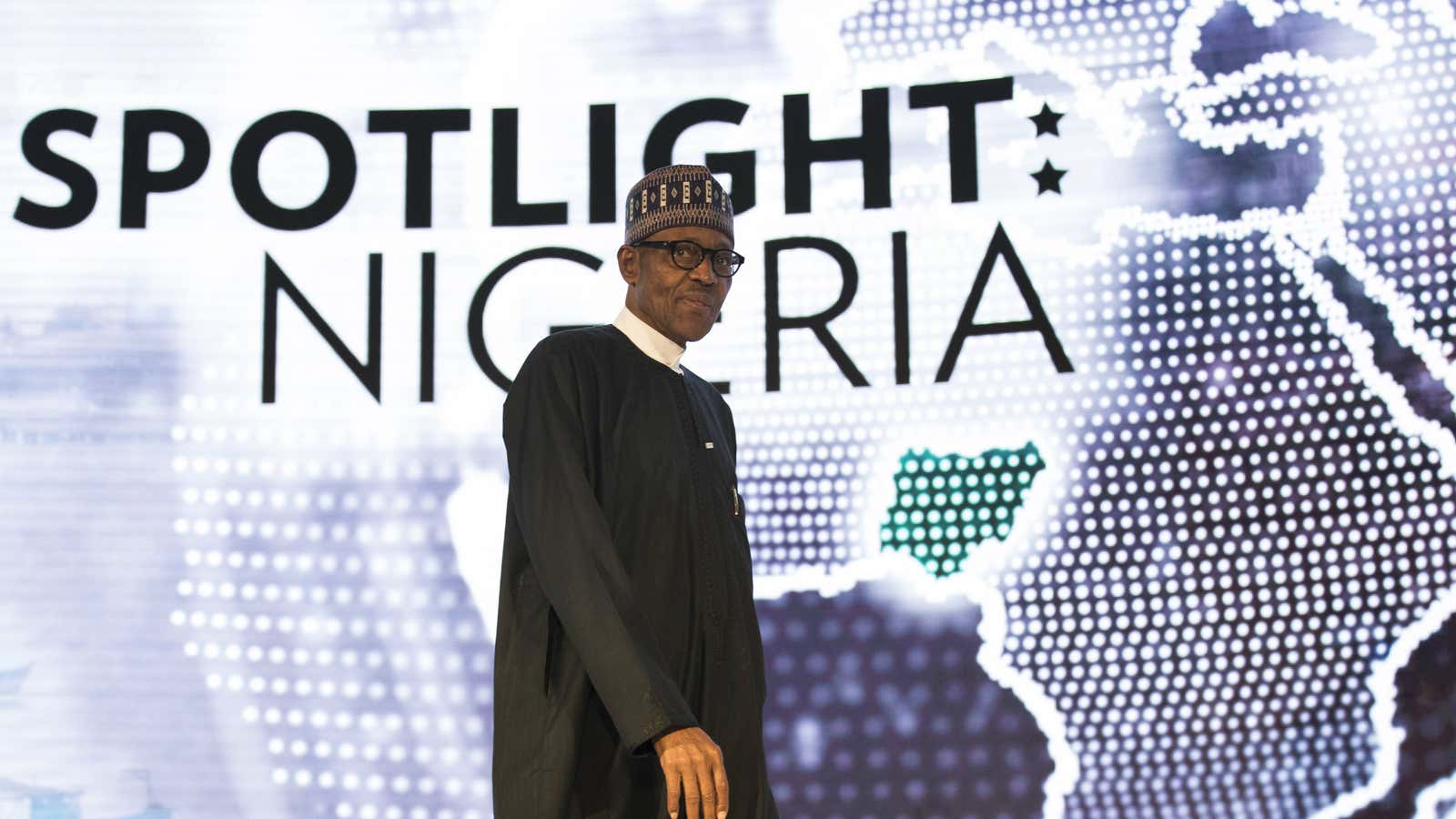For much of the past year, Nigeria’s economy, the largest on the continent, has been mired in a recession. Shocked mainly by a fall in the price of oil, the country’s biggest export, and a resumption of militancy in the oil-rich Niger Delta region which hobbled oil production, Nigeria’s economy ended 2016 on course for a full year of negative growth.
A key feature of Nigeria’s struggles have been the questionable currency policies adopted by its central bank, leading some to question the apex bank’s independence. After insisting on a fixed exchange rate in a bid to manage depleting reserves, the Central Bank announced a policy to adopt more flexible rates determined by market forces in June. But despite its public proclamations, market trends suggested the currency was never fully floated. While the Nigerian naira’s official value has relatively held steady since the currency float, a true reflection of its value is seen on the parallel market.
What needs to be done
To ensure economic growth in 2017, analysts say the credibility of the Central Bank must be restored. One way to do that, is to fix the current foreign exchange regime. “Fiddling with the foreign exchange market is a recipe for economic collapse,” Nonso Obikili, research associate at Economic Research Southern Africa, tells Quartz. “The controls and multiple markets needs to go and a properly functioning market without price controls needs to be implemented.”
Tunji Andrews, a Lagos-based economist shares similar sentiments and says the losses as a result of capital controls will outweigh any benefits. “The federal government and the Central Bank of Nigeria are scared of a weaker currency and this is a valid fear but every form of capital control will only worsen the already bad situation.”
With confidence in the economy waning, Obikili says big-ticket reforms are necessary to regain trust. “The economy is at the lowest it has been in terms of confidence in a long time and needs something of a morale boost—a major reform in one of the sectors could be that boost.” Andrews particularly advocates business reforms starting with a “serious campaign to move Nigeria 10 steps higher on the ease of business list.”
Last year, World Bank’s Ease of Doing Business report ranked Nigeria at 169 out of 190 countries analyzed. Improving the ease of doing business, Andrews says, will send signals to reticent foreign investors that the country is “once again open for business.” Per the World Bank report, there is much to improve on: across ten business areas analyzed, Nigeria ranked in the bottom half in eight categories.
But Nigeria’s next presidential elections, despite being more than two years away, are starting to loom large and could become a crucial factor in government’s decisions. With Nigeria’s president Buhari likely seeking a second term in office, economic decisions will likely be rated by political expediency.
“The key thing for me is that we are now entering the last year of the term in which governance is possible,” says Feyi Fawehinmi, a UK-based accountant and commentator on Nigeria’s economy. Starting from early next year, Fawehinmi expects the political class to turn its attention to the 2019 elections. As a result, despite the possible long-term benefits, Fawehinmi says reforms are unlikely “because of the amount of political runway they have left.”
Cheta Nwanze, analyst at SBM Intelligence agrees. ”The things that can be done to set the economy back on track are politically risky,” he tells Quartz. Without the political will to carry out crucial reforms, Nigeria will hinge its economic stability on OPEC’s fragile production deal, Nwanze says.
But that’s not the only deal critical to Nigeria’s economy in 2017. To take advantage of higher oil prices occasioned by the OPEC agreement, Nigeria will also need to cut a deal with militants in the Niger-Delta to ensure its daily oil production target is met. In all, given the permutations, significant growth appears unlikely in 2017.
“My prediction is that, policy-wise, we will stumble on as is. If we get lucky we might technically get out of recession,” Obikili tells Quartz. “If we get hit with another major external shock then 2017 could be worse than 2016.”
